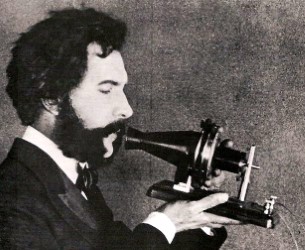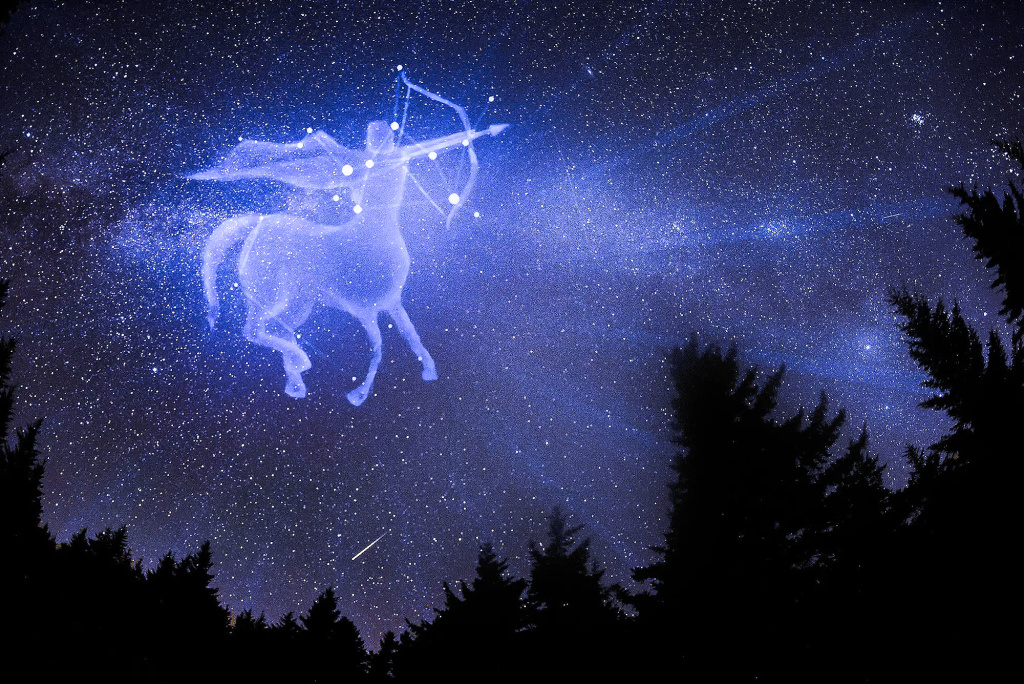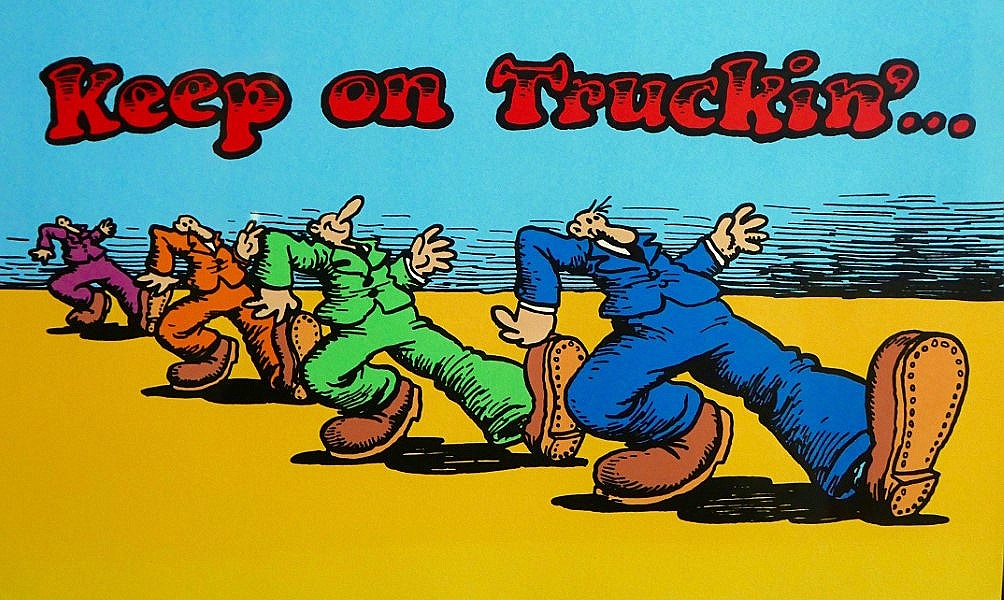| By: Paul S. Cilwa | Viewed: 7/26/2024 Posted: 1/4/2023 |
Page Views: 540 | |
| Topics: #Language | |||
| Language is far from static, and older terms often end up misunderstood. | |||

A classic scene from the great film, Back To The Future, has 1985's Marty McFly trying to purchase refreshment in a 1955 diner. He asks the guy at the counter for a Tab; the guy replies, "Tab? I can't give you a tab unless you order something."
This confuses Marty, who hasn't yet really grasped that he has traveled back in time. "Right. Give me a Pepsi Free."
"You want a Pepsi, pal, you're gonna pay for it!"
When we watched this exchange, those of us who remembered the fifties found this dialog to be hilarious. Tab had been introduced introduced in 1963; it tasted terrible (because it was sweetened with sacharrine) but they sold it for a nickel a bottle back then, as opposed to the dime a regular Coke would cost. So, I bought it and even developed a taste for it. Sort of. But apparently not many did; it was discontinued in 2020.
Pepsi Free was introduced in 1982, just three years before the movie's starting point takes place. The name was retired, however, in 1987.
So that means that the scene itself will be doubly opaque to Millennials, who are equally unfamiliar with 1980s products as with those of the 1950s.
But brand names are not the only aspect of our language that change with time. Various terms for things come into vogue and then are replaced by others. Take the current initialism PTSD, which most people know is short for Post-Traumatic Stress Disorder. This condition presents symptoms that include disturbing thoughts, feelings, or dreams; mental or physical distress to trauma-related cues, alterations in the way a person thinks and feels, and an increase in the fight-or-flight response.
The term was originally proposed in 1978 as a way of describing the set of symptoms found in many soldiers returning from Vietnam. We now know that warfare is not the only way to develop PTSD; any exposure to a traumatic event, such as sexual assault, traffic collisions, child abuse, domestic violence, or other threats on a person's life can give this gift that keeps on giving. In times of peace, the relatively small numbers of persons suffering from it in a way others notice, has historically kept the set of symptoms from being understood as having an underlying cause.
But war causes so many cases of PTSD, and often spectacular ones (more than one returned soldier has shot innocent Americans under the impression that the war was still being fought and they were surrounded by the enemy), that they can't be ignored. And so, in the years since Vietnam, PTSD was identified, and treatments have been suggested that seem to have some effect, in some cases. I, myself, spent a total of six months hospitalized with flesh-eating bacteria that attacked my left leg, and have PTSD that gets triggered when I feel my legs are immobilized, for example if I'm under the blankets in bed and my two big dogs lie on either side of my legs. If I can't move my legs freely, I feel an anxiety attack coming on that can only be prevented by convincing both dogs to sleep on the same side of me.
Of course, Vietnam wasn't the world's first war, nor was it the first war in which America was involved. A similar set of symptoms observed by military doctors in and after World War II, was referred to as Combat Stress Reaction. While the list of symptoms are not a perfect match, the frequency of occurrence is. So if Marty McFly had been a soldier in Vietnam and drove that DeLorean to 1945, no one would understand his diagnosis of Post-Traumatic Stress Syndrome (because the name hadn't yet been coined) and he wouldn't understand what anyone else's complaint of having Combat Stress Reaction meant.
And if he traveled back to the First World War, he'd be further puzzled by the complaints of shell shock. The meaning was far less nuanced than is that of PTSD; cases of "shell shock" could be interpreted as either a physical or psychological injury, or even as a as a lack of moral fibre!

I've noticed that when a new term replaces an older one, it generally is more clearly defined than the word it replaces.

Sometimes, the word can stay the same but the thing the word describes changes. For example, if I say "Please hand me that phone," what I will receive in response will look quite different depending on the year in which I make my request.
And if I make my request prior to 1878, when the word phone appeared in the Des Moines Register as a "colloquial shortening" of that new invention, the telephone. (Before that, the word "phone" was a technical term used by linguists. And, of course, the word was familiar to the educated person as the Greek word for sound or voice.)
In gathering data for this piece, I came upon an article about how the word "slay", which used to mean to kill, now means to do something with total success. The article noted that this, and other newly re-defined terms, are causing miscommunication between the GenY kids now entering the job market, and their older managers and bosses.
| Time Period | Meaning | |
|---|---|---|
| Awe | 500 CE to 1000 CE | fear, terror, dread |
| 1000 CE to 1890 CE | Reverential wonder | |
| 1900 CE to present | Wonderment, astonishment | |
| Fantastic | From Greek through Latin and Medieval French | Imaginary, or seeming to be imaginary |
| 1930s to Present | Wonderfully, amazingly good | |
| Flirt | 1650s CE | A sudden sharp movement, a jab or sneer |
| 1880s | To jab playfully for romantic ends | |
| 1900s CE | Anything that will garner positive attention from a potential mate |
One of my favorite tales of linguistics begins with early Roman explorers who sailed south along Africa's west coast. Around the Congo River they encountered an animal they'd never seen before. It was four-legged, boxy like a horse, but it had a single horn growing out of its head. Since most horned animals have a matching pair of horns, the captain of the expedition named the new creature after its most unique feature: its single horn. The Latin word for "one-horn" happens to be unicorn.

When the explorers came home, Roman publishing houses (where scrolls were copied en masse by Greek slaves) were quick to meet the public demand for tales of the weird lands outside the Empire. Scrolls were generally illustrated, especially if they were aimed at the mass market. The artists, going by the written description, drew a horse with a single horn growing out of its forehead.
Such a novel creature captured the public's fancy and all kinds of stories were passed around in which this one-horned horse was credited with all kinds of magical powers.
But as the centuries passed and explorations continued, the boxy, one-horned creature was rediscovered. However, no one associated it with a unicorn, because it didn't look at all like the drawings they'd seen all their lives. Besides, by then Latin had given way in the species-naming business to Greek. So, what separated this "new" species from the unicorn? Well, the new species' single horn grew out of its nose, not its forehead, as the scroll-artist had imagined. So, using Greek terms, the species was given the name "nose horn"—rhiniceros.

But here's the weird thing: There are still adults who believe in unicorns (of the illustrated Roman scroll variety), that they either do or did exist. I've heard an educated man insist that unicorns existed.
Our ability to communicate descriptions of things depends, not just on words, but also on the context of the society offering those words. For example, in the Biblical Book of Genesis, we are told that God put a "bow" in the sky as a visible promise not to flood the Earth again. Practically every Christian I've talked to, believes this is a reference to a rainbow. But it isn't; the word in Hebrew (which every Jewish person who's had their bar- or bat-mitzvah, can read) means an archer's bow. The reference is actually to the constellation of Sagittarius, The Archer.

Note that the Saggitarius archer is always shown on a flying horse. Elder legends have it that \ "the gods" came and went from the direction of Saggitarious in the sky.

Answer: It depends on your age or how widely read you might be. To most millenials, there is one truck, waiting for some guy with a cart. But to anyone over a hundred, or is fond of Dickens, will see two trucks. Prior to the motorized haulers of today, the noun, "truck," is derived from the verb, "truck," meaning to haul around, as in the '70s catch phrase, "Keep On Truckin'."

There's a (probably) apocryphal story of an indigenous person on a beach spotting the first European ship, a great-masted schooner, but unable to fully perceive it because they had no cultural context for it. The person, reporting to their tribe, could only describe what they'd seen as a "large, weird cloud on the horizon." That didn't seem like anything of evil portence, unless it was an unknown kind of storm.
Of course, the storm it brought wasn't the one they expected, as they discovered when the "cloud" landed just off the beach and men came out of it, with oddly pale skin, magicaldevices, a cross, and an agenda.

If that had been a one-time visit, and not the first of a series which completely engulfed the original native cultures, members of those tribes might still be telling their children the stories of how strange men were carried by a cloud from the horizon and returned the same way.
It is a fact, however, that our ancestors of thousands of years ago, could all have been considered indigenous people of their day since, presumably, the limitations of foot travel over oftem hostile and unknown environments, tended to keep people in their own areas. And they all, from the Native North and South Americans to the Sumerians, to the Egyptians, and others, reported a cloud, or a dragon, or a flying chariot, arriving, not from the horizon, but from the stars in the sky overhead. They, too, emitted men-like beings with oddly pale skin and magical and sometimes deadly devices.
Their agenda is yet to be determined, as is whether their visits here are one-offs, or part of a series.
But if you insist, despite the overwhelming evidence, that your preferred Divine Being, who lives in the stars but occasionally comes to Earth to interfere (excuse me, I meant "to intervene") with humanity is an actual Supreme Being of sone sort is simply to insist on believing in unicorns.






